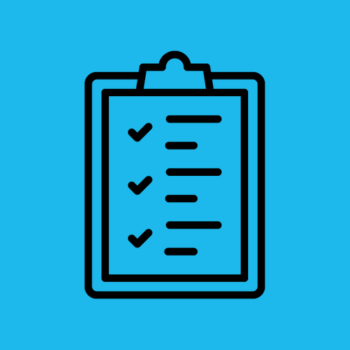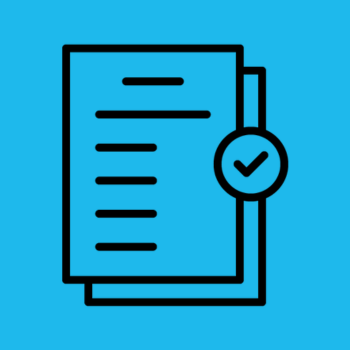Your CV gives potential employers and recruiters an insight into you, your skills, and your experience. It’s your opportunity to talk about your achievements and how you’d be a great fit for the role and their business.
Hiring managers will be sent move CVs for their role than they need, so it is important that your CV makes an impact. Spending time on your CV will make a difference, ensuring that you have checked your spelling and grammar, and that it is consistent all the way through. There’s nothing worse than reading a CV that says ‘great attention to detail’ but finding a missing full stop!
Contact details
Your contact details need to be on your CV. You should include your name, phone number, and email address. Your email address should be professional, ideally name.surname@email.com.
Do not include:
- Your age
- Date of birth
- If you’re married or not
- Your nationality
- Your gender

Introduction/personal statement
Your introduction is a paragraph that talks about who you are. It is an opportunity to outline any skills that you think would be relevant to the job that don’t quite fit in the other sections of your CV.
Your introduction should make you sound like you’re the perfect person for the job.
Work history
In this section include details of any paid jobs, volunteering, or placements that you have completed, starting with your most recent experience first.
Include:
- The name of your employer
- Your job title
- The dates you worked there
- Your responsibilities, this is usually 2 or 3 lines
Short work history
If you’re applying for your first job concentrate on skills you have learnt during projects, work experience, or if you do any volunteering.
If you have hobbies or interests that can showcase the necessary skills you can add them here too. For example are you on a sports team and can talk about teamwork and communication skills.
Education history
You can add this after the introduction if this is your first role and you don’t have any work experience.
Starting with your most recent qualification, include:
- Names of your qualifications
- Name of the school, college or university where you studied
- Dates you attended
- Your GCSE results for English and maths
Hobbies and interests
Hobbies, passions, and interests can be a great way to stand out from the crowd and an excellent icebreaker in an interview. It's unlikely that they will be the reason you're offered a position, work experience and qualifications will usually be the deciding factor when an employer makes a job offer, but they do give a company an overview of your personality and if you’re a good fit for their business.
References
Don’t add the contact details for your references but advise that they are available on request. This both looks neater and doesn’t take up valuable space.
Keep it short
Your CV is not a huge list of everything you’ve ever done, keep it concise, around two pages in length. It should be in reverse chronological order, with your most recent job or education at the top and references at the bottom.
Tailor it to the role
Your CV should be tailored for each role you’re applying for, highlighting the skills and experience that the job description outlines. Use the same language and vocabulary that the job description uses; this allows the hiring manager to quickly see that you have what they’re looking for. Alongside any role specific skills, make sure you mention transferable skills too, things like initiative, positive attitude, and teamwork are important skills to highlight as it helps the hiring manager understand what kind of person you are.
Proof-read
Read, reread, and reread it again. Read it forwards and backwards, checking for spelling, Americanisation, and grammar. It can also be helpful to ask a family member or friend to read it for you. Hiring managers have been known to stop reading CVs if there are spelling or grammatical mistakes.
Top tips for CVs
- Be yourself but also consider the industry you want to work in. Pink, scented CVs might work in films but in real life they’re not appropriate
- Tailoring your CV is important, using a generic CV shows that you don’t really want the role. There will be a chunk of your CV that will stay the same (personal details, education, order of work experience) but you will need to highlight specific skills that are mentioned in each job description
- If you’re invited for an interview, your prospective employer can ask you about anything on your CV, so make sure you haven’t lied!
- A spell checker is no replacement for reading and rereading your CV, but it is a useful tool to start the process
- Use a clear font like Arial or Calibri in size 11 or 12, keep it consistent with your cover letter
- Think about the layout, having headings and bullet points can make CVs easier to read







